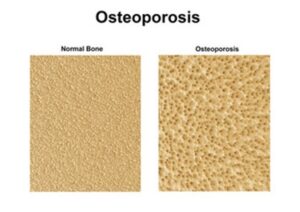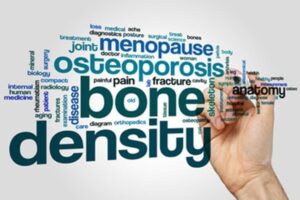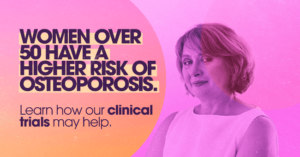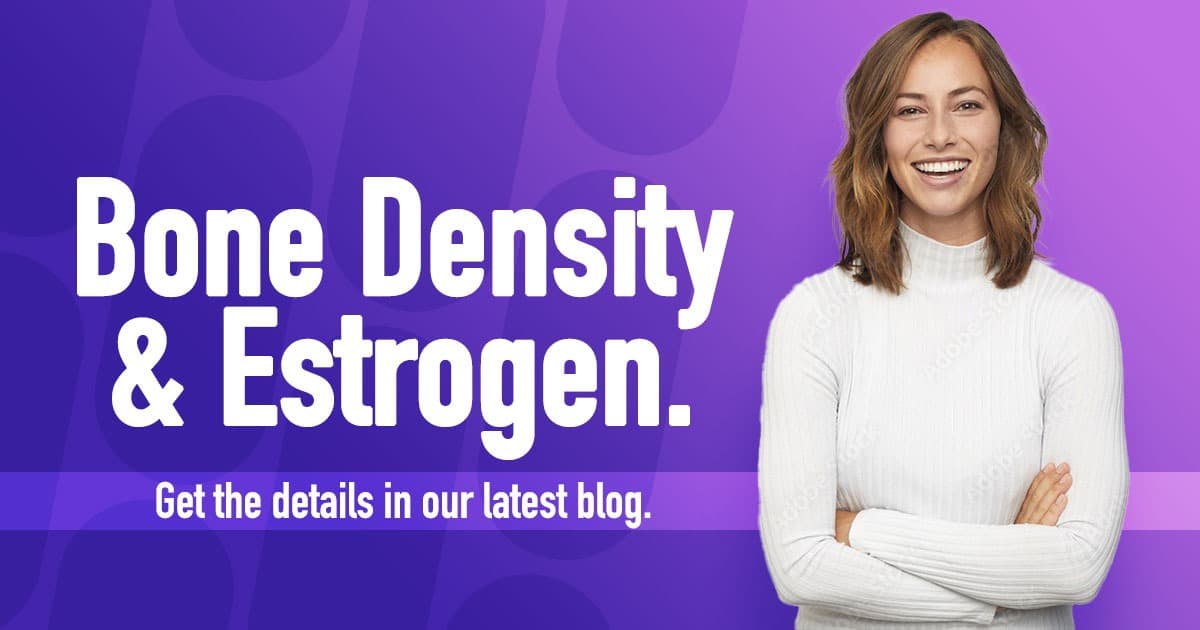Bones are living, growing tissue that allows us the freedom to move by supporting our bodies and protecting our brain and other organs. Bone density is an essential component of overall bone health, with several contributing factors. One of those factors is estrogen. About half of women over 50 will break a bone due to osteoporosis. It’s time we look deeper into the connection between bone density and estrogen.
What is Bone Density?
Bones are mostly made of collagen, a protein that provides the soft framework of bones. Calcium phosphate is a mineral that hardens this framework and adds strength to it. These minerals make up the bone density contained in a particular volume of bone. The more minerals in the bone, the stronger they are.

Every day, our body breaks down old bone and replaces it with new bone. When we are younger, new bone is added faster than old bone is removed. Thus, making our bones larger, heavier, and denser. After age 20, new bone “deposits” slow down, and the old bone “withdrawals” begin to exceed them. Osteoporosis is a weakening of bones that develops when bone removal occurs too quickly, replacement occurs too slowly or both.
How Does Estrogen Affect Bone Density?

Menopause is the most common cause of osteoporosis, affecting 1 in 2 postmenopausal women. To accommodate menopausal changes, hormones change, and estrogen levels fluctuate and then drop. Estrogen is a hormone that promotes the activity of the cells that produce bone (osteoblasts) and is therefore essential in female bone health. When estrogen levels drop during menopause, this significantly speeds up bone loss because:
- The osteoblasts can’t effectively produce bone.
- There’s no decrease in the natural breakdown process of bone
When you’re approaching menopause, the sudden drop in estrogen comes with physical and psychological signs such as:
- Problems sleeping
- Night sweats
- Mood changes
- Anxiety
- Memory issues
- Fatigue
- Change in sex drive
- Incontinence
- Vaginal dryness
The influence on your bones won’t be as obvious, so knowing these signs can help you be proactive in your bone health. If you’re going through menopause and your healthcare provider hasn’t talked to you about your bone health, it’s time to bring it up!
Osteoporosis Isn’t an Inevitable Part of Aging
Osteoporosis was once thought to be an inevitable part of aging. Today we know a lot more about how to prevent, detect, and treat the disease thanks to the work of clinical research. You are never too young or old to take care of your bones. The recipe for bone health includes simple, healthier lifestyle changes, like:
- Getting enough calcium and vitamin D by eating a well-balanced diet.
- Exercise
- Don’t smoke or drink

Birth control and bone density studies are starting soon here at Seattle Clinical Research Center! Contact our team today to learn more at (206) 522-3330.
Sources:
https://www.endocrine.org/patient-engagement/endocrine-library/menopause-and-bone-loss



